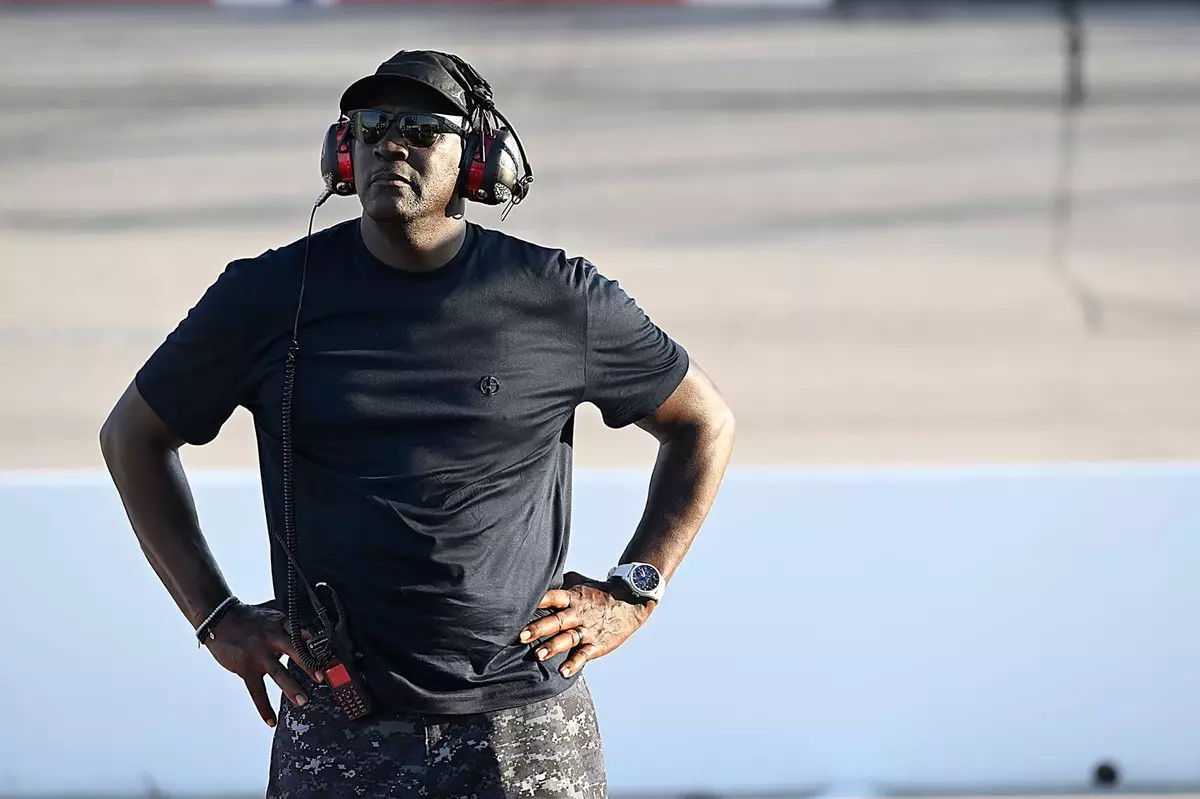In a notable move that could reshape the competitive landscape of NASCAR, two racing teams—23XI Racing and Front Row Motorsports—have initiated a joint lawsuit against NASCAR itself. This legal battle emerges from claims of “anti-competitive and monopolistic control,” indicating a significant fracture within the motorsport community. The essence of their grievance lies in NASCAR’s governance, which they argue has become increasingly opaque and stifling for teams outside its inner circle.
The decision not to sign the new charter agreement proposed by NASCAR further underscores the mounting frustrations faced by these teams. Such a refusal is not merely an act of defiance; it reflects deeper concerns regarding fairness and equity in the racing sport. The statement issued by both teams encapsulates their shared ethos: a belief that competitive integrity is essential for the survival and growth of NASCAR. They emphasize the need for change to ensure the sport thrives not only for the teams and drivers but most critically, for its fans.
Central to the lawsuit are specific allegations against NASCAR’s leadership, primarily the France family, who have monopolized control since the inception of the racing series in 1948. The lawsuit claims that NASCAR has undertaken several anti-competitive practices that negatively impact independent teams. Key grievances include:
1. **Monopolization of Racetracks:** NASCAR has allegedly purchased a majority of the premier racetracks that exclusively host NASCAR events.
2. **Exclusivity Contracts:** The organization is accused of imposing restrictive exclusivity agreements on NASCAR-sanctioned racetracks, further limiting the competitive field.
3. **Acquisition of Competitors:** NASCAR’s acquisition of the Automobile Racing Club of America (ARCA), a significant competitor in stock car racing, is viewed as an aggressive move to eliminate competition.
4. **Restrictive Participation Policies:** The teams allege they are barred from participating in other stock car events, which stifles their chances to race and diminish their visibility.
5. **Single-source Supplier Restrictions:** NASCAR’s insistence that teams procure their parts from specific suppliers raises concerns about quality and pricing for teams operating on tight budgets.
These allegations speak to a larger concern that such practices serve to fortify NASCAR’s control over the sport while leaving teams at a disadvantage. This lawsuit is not merely about the teams involved; it highlights systemic issues within the NASCAR framework that merit attention and reform.
Voices of Change: Team Owners Speak Out
The motivations behind this lawsuit are compounded by personal stakes from both sides. Michael Jordan, NBA superstar and co-owner of 23XI Racing, vocalized his commitment to a more competitive series. He argues that he is fighting for the integrity of competition in a sport he loves. Jordan’s powerful stature in the sporting world provides additional weight to the case, as he stands against a system he perceives as favoring only a select few.
Bob Jenkins, owner of Front Row Motorsports, echoed this sentiment by voicing a need for transformation. As someone deeply entrenched in the racing community for two decades, Jenkins’s call for a recalibrated framework underscores that the concerns being raised are rooted in experience and a desire for equity. Both owners are advocating for modifications that would empower teams, drivers, and sponsors alike, ensuring that the investments made into the sport yield fair returns.
The crux of the lawsuit rests on a fundamental desire for change within NASCAR’s operational structure. Team co-owner Polk articulated a vision that aspires to create a partnership model rather than a dictatorial framework. Their goal of a dynamic and transparent environment is not just a wishful notion but a necessary evolution for the sport.
The path forward, as outlined by the teams, could involve securing a preliminary injunction to enable participation under the new charter arrangement while continuing their litigation. This pragmatic approach highlights the urgency of their stance, as they wish to safeguard their competitive futures while also challenging archaic practices.
The antitrust lawsuit filed by 23XI Racing and Front Row Motorsports could potentially mark a transformational moment for NASCAR. It underscores deeper systemic flaws that, if rectified, may lead to a more inclusive and competitive environment. The outcome of this legal battle remains to be seen, but the call for change resonates profoundly amidst the ever-evolving narrative of motorsports in America.


Leave a Reply